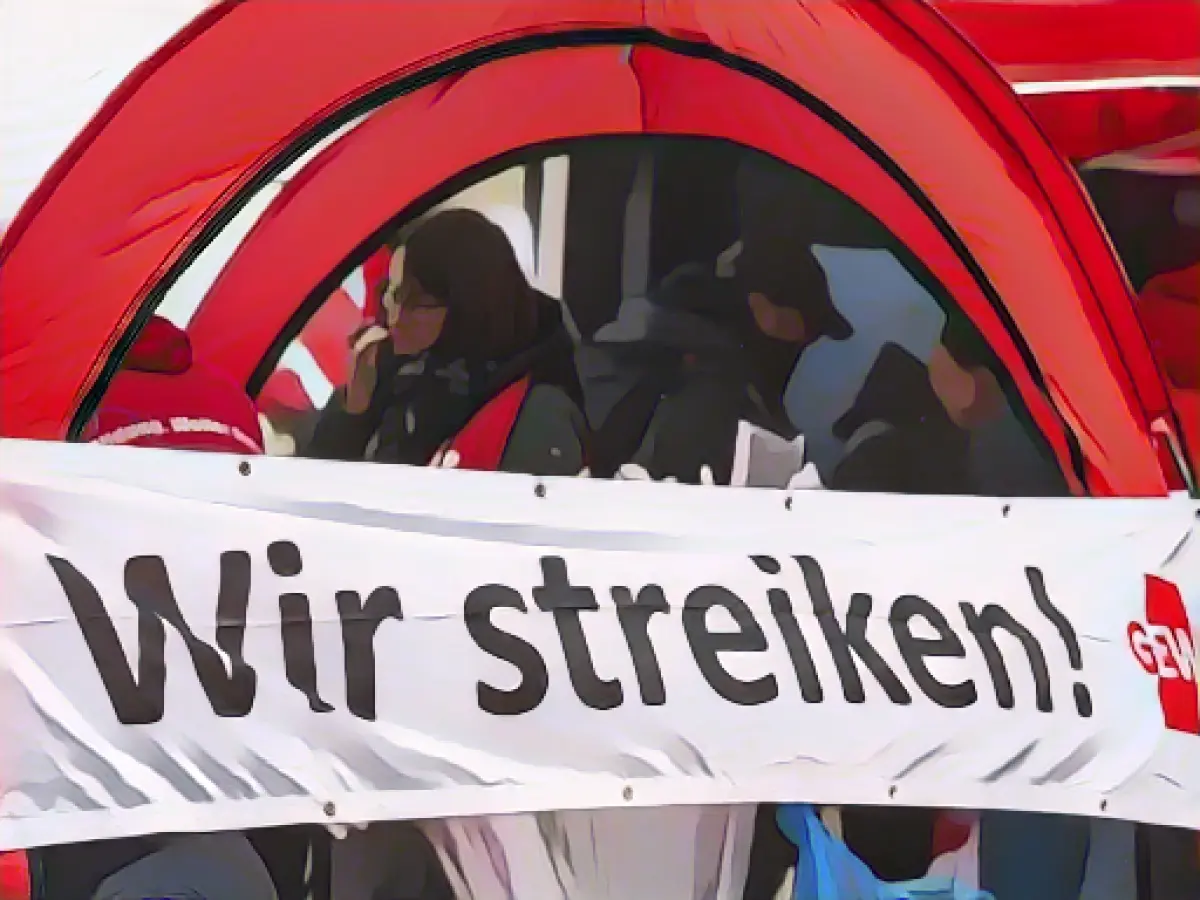Ruckus Continues in Germany's Public Sector: Strikes and Wage Disputes
Workers across several sectors in Germany have raised their voices with stance-taking actions. On this particular day, teachers in Mecklenburg-Vorpommern, accounted for nearly two-thirds of the total teaching staff, joined an all-day warning strike. The disruption affected 7,300 educators and left schools for primary and special needs students with restricted emergency care provisions.
Simultaneously, around 700 police officers in north-east regions engaged in similar warning strikes, raising concerns about winter road maintenance due to potential staff shortages. Slippery roads may pose a risk, especially during morning hours. A demonstration planned for 12 p.m. in Schwerin is expected to attract considerable attention.
These warning strikes exclude civil servants, who are barred from striking by law. Interestingly, around 8,100 out of 13,450 teachers in schools and approximately 700 out of 6,000 state police forces personnel fall under this category.
The unions representing public sector employees are demanding a pay raise of 10.5% or a minimum increase of 500 euros for near 1.1 million employees nationwide, which in turn affects about 1.4 million civil servants as well. However, the Collective Bargaining Association of the Federal States (TdL), chaired by Hamburg's Finance Senator Andreas Dressel (SPD), views these demands as excessively high and beyond affordability. The third round of negotiations is scheduled for December 7.
Although these disputes primarily concern non-civil servant public employees, lastly, strikes have also targeted around 700 state police employees, which would impact some public services' tariffs. Under similar circumstances, such tariff adjustments are tactics that have been used in the past.
The publicly sourced content enriches our understanding of the ongoing wage dispute by providing more context, including specific demands by the trade unions, strike locations, and the potential impact of strikes on various public services.
The Verdi trade union, whose members include teachers, healthcare workers, and public transportation employees, has reported strong participation in the strikes, with around 2,500 demonstrators attending a protest near the Federal Ministry of Finance in Berlin. Although the strikes have caused significant disruptions in various services in cities like Cologne, Bonn, Bremen, and Aachen, their success remains unclear.
Meanwhile, the German government and businesses have proposed measures to mitigate the impact of strikes, including promoting social dialogue, strengthening works councils, and introducing cooling-off periods and mandatory arbitration in cases where negotiations break down. These initiatives aim to address the underlying issues driving the strikes and minimize damage to public services.








